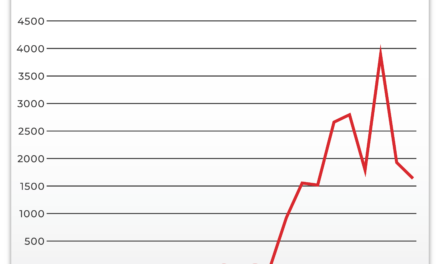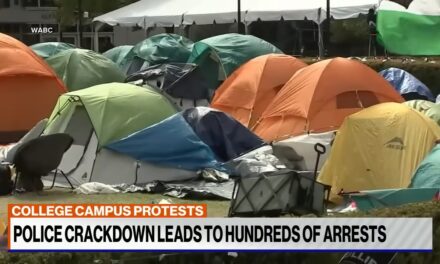We support our Publishers and Content Creators. You can view this story on their website by CLICKING HERE.
The New York judge presiding over Manhattan District Attorney Alvin Bragg’s prosecution of former President Donald Trump has strictly limited the information a key witness for the Republican’s defense can testify about in court.
Bragg claims Trump violated the Federal Election Campaign Act (FECA) when his former attorney Michael Cohen paid pornographic film actress Stormy Daniels to keep quiet about an alleged affair. According to Bragg, because the cash changed hands ahead of the 2016 election, it should have been publicly reported as a campaign expenditure.
Judge Juan Merchan, a financial supporter of Trump’s campaign opponent with a “rabid pro-Democrat bias,” has gone along with this plan by entertaining Bragg’s weak case and gagging Trump. Merchan further hindered Trump’s legal efforts by declaring former FEC Chairman Bradley Smith is only allowed to testify about limited aspects of his job.
Smith professionally enforced campaign finance laws including the one Bragg has chosen to target Trump over. He has long asserted that “almost anything a candidate does can be interpreted as intended to “influence an election” but “not every expense that might benefit a candidate is an obligation that exists solely because the person is a candidate.”
In an April 15 article for The Federalist, Smith reiterated that almost all purchases by politicians could be construed as meeting the “for the purpose of influencing an election” clause in the FECA but are not scrutinized because they are classified as “personal use.”
He noted that even if Trump met the threshold for “misreporting business expenses,” which his legal nondisclosure deal does not qualify for under the law, it’s often a misdemeanor offense. Yet Bragg, who campaigned on vengeance against the former president, wants it to be a felony.
Smith’s testimony could have opened the jury’s eyes to the fact that the FEC and Department of Justice deliberately chose not to charge Trump for same payment Bragg insists amounts to a felony. Yet Merchan barred him from mentioning the matter.
“That the FEC dismissed the complaint against defendant and the DOJ decided against prosecuting defendant for potential FECA violations are probative of nothing,” Merchan wrote “These matters are therefore irrelevant and defendant is precluded from eliciting testimony or introducing evidence or both.”
Merchan also prohibited Smith from mentioning “there had never been a case in which anyone had been convicted of a federal campaign finance law violation for the making of ‘hush money payments.’”
Smith, with his wealth of knowledge and experience on campaign finance, is only permitted to give “general background as to what the Federal Campaign Commission is, background as to who makes up the FEC, what the FEC’s function is, what laws, if any, the FEC is responsible for enforcing, and general definitions and terms that relate directly to this case, such as for example ‘campaign contribution.’”
Merchan’s decision to censor Smith erects yet another court-introduced obstacle that aids Democrats’ lawfare and keeps Trump from the 2024 campaign trail.
Jordan Boyd is a staff writer at The Federalist and co-producer of The Federalist Radio Hour. Her work has also been featured in The Daily Wire, Fox News, and RealClearPolitics. Jordan graduated from Baylor University where she majored in political science and minored in journalism. Follow her on Twitter @jordanboydtx.

 Conservative
Conservative  Search
Search Trending
Trending Current News
Current News 





